



Goans have always taken their Feni seriously; they drink it pretty much on all occasions, from weddings to funerals “where a man carries a glass garrafão filled with Feni and gives the mourners a shot after they have paid tribute to the departed soul,” says Slow Tide, Anjuna’s owner Neil D’souza. Urrak, the first distillation of cashew-apple juice, is further fermented to make Feni. Much like Urrak, it is sold in Jerrycans, glass garrafãoes or drunk in taverns across Goa. There are traditional distilleries or bhattis in villages, particularly in Pernem and Valpoi, known as Goa’s Feni belt, from where locals buy their fix.
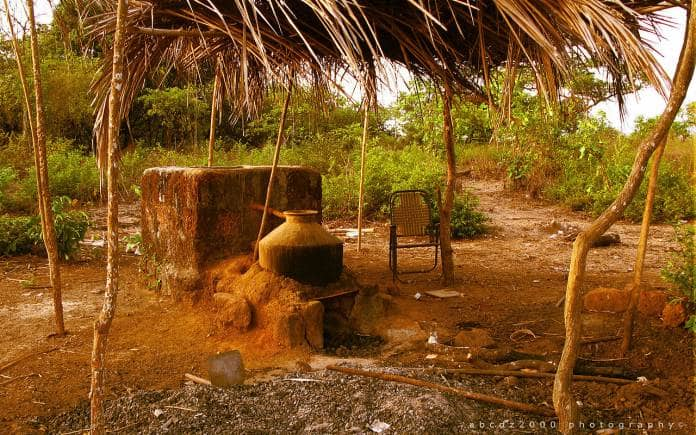 After Urrack is distilled from the cashew apple, the juice is further distilled in a traditional method on a hill to make Feni. The cashew juice is put in a big pot called a Bhann. The Bhann serves as a closed boiler. It is connected to a smaller pot called Launni by means of a conduit. The Launni serves as a receiver or collector. (Photo: Wikimedia Commons)
After Urrack is distilled from the cashew apple, the juice is further distilled in a traditional method on a hill to make Feni. The cashew juice is put in a big pot called a Bhann. The Bhann serves as a closed boiler. It is connected to a smaller pot called Launni by means of a conduit. The Launni serves as a receiver or collector. (Photo: Wikimedia Commons)
ALSO READ: Urrak Cocktails are the flavour of the season
Travellers to Goa and ‘outsiders’ living here, on the other hand, have traditionally been repelled by the high acidity, pungent taste and strong aromas of Feni. In recent times, though, mixologists, bartenders and Feni makers have elevated the Feni experience to a whole new level, creating a new Feni drinking culture.
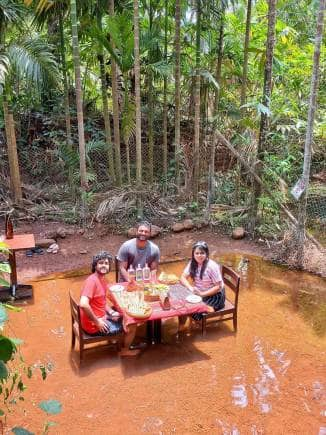 Floating Cazulo Feni-tasting.
Floating Cazulo Feni-tasting.
The Goan heritage spirit feni is a complex second distillation of cashew apples, fermented from Urrak, or the first distillation. There are three types of Feni and the Cazulo Premium Feni, the leading brand owned by Hansel Vaz, distills all three: the more popular Cashew Feni; Coconut Feni (made from toddy tapped from coconut trees) and Dukshiri Feni, a coconut feni distilled with the roots of Sarsaparilla (a tropical plant with red cherry-like fruit).
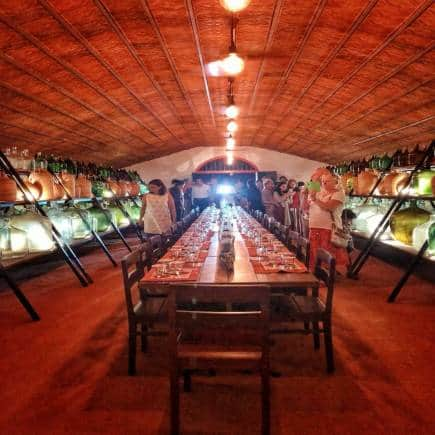 Cazulo Feni cellar and tasting room.
Cazulo Feni cellar and tasting room.
The branding of Feni
Karl Fernandes, head of consultation, Countertop India (a group of bar consultants, bartenders, mixologists, and bar owners), whose Instagram handle (the_feni_guy.karl) is a tribute to this heritage spirit, credits Hansel Vaz as the pioneer.
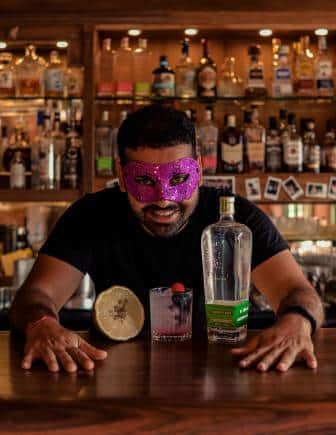 Karl Fernandes
Karl Fernandes
Vaz comes from Goa’s first family of Feni who made it at home. His parents converted the know-how into a profitable business. He chucked his job as a geologist to return to the family trade sometime in 2017.
What followed was a lot of learning from traditional Feni makers, documenting the traditional technique, and setting up the Cazulo estate in south Goa, which spans cashew and spice plantations, a distillery, an experience centre and a Feni cellar called Beco das Garrafas (the alley of bottles) with shelves of vintage garrafãoes that were shipped to Goa during the Portuguese rule.
From this estate, not only does he make some of the best Feni we have had, but also works on creating international markets and, as president of the Goa Feni Association, lobbies with the state government to maintain Feni’s classical roots. He campaigned for a GI (geographical indication) tag for Feni - this was awarded in 2009. According to excise laws, only classical coconut and cashew spirits, and the variant Dukshiri, can be called Feni. “Old brands such as Big Boss Feni have held on to the cultural roots,” says Vaz.
Cazulo has 26 Feni expressions across three categories — Cashew Premium Feni, the milder Coconut Feni, and the nutty liqueur style Dukshiri Feni. There is a glut of Feni brands since Vaz first set out to transform Feni’s image. What we have now is a Feni without the aromas and acidity levels of the original.
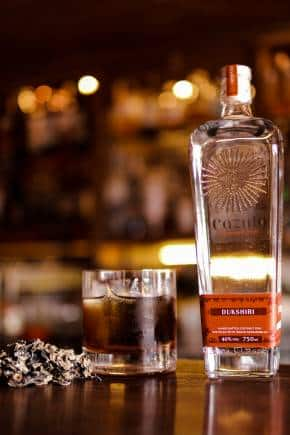 Cazulo Dukshiri Feni and cocktail.
Cazulo Dukshiri Feni and cocktail.
Brands such as Tinto are bottling smoother versions of Feni in fancy bottles. Architect Clement DeSylva moved from Mumbai to Goa to set up an infused Feni brand, Ani Ek, with flavours such as Honey-Cinnamon, Limon, Chilli and Kokum.
“These infusions lend themselves to cocktails, but even a straight pour is wonderful,” he says. Fidalgo’s Rhea’s Harmony is a blend of honey and cinnamon with cashew, while Ocean King Distillers’ Arabella Cashew Feni has lemon notes. There is a Sattari, a new barrel-aged velvety Feni that you can drink as a shot.
Can Feni be infused and barrel-aged?
It isn’t like barrel-ageing or infusing Feni is a new thing. Goa has been infusing its Feni with fennel and ajwain (carom seeds) for generations. Escobar’s Anant Shirodkar infused feni in his backyard and sold it for Rs 50 when he first moved to Goa years ago. Architect Buland Shukla, who runs The Record – The Vinyl Bar ages Feni for five to six years, to achieve a flavour profile and colour similar to bourbon.
In Valpoi, several traditional Feni bhattis have followed the ‘burrel’ (or barrel) maturing processes. The Haldancar family, who owned the biggest stash of burrel-matured Fenis, tragically lost it all a few years ago in a raging fire.
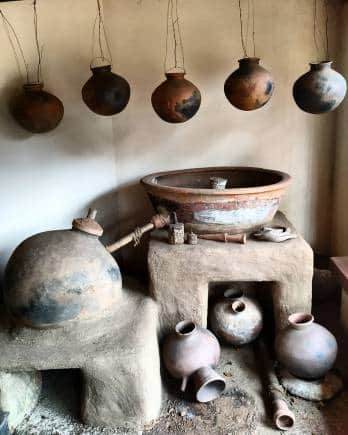 Traditional bhatti in which feni is made. (Photo courtesy Goa Chitra Museum)
Traditional bhatti in which feni is made. (Photo courtesy Goa Chitra Museum)
And yet, Vaz is against the techniques used by new-age brands to glamourise Fenis. “Feni has to be vapour infused at a distillation stage; you can’t just physically add an infusion. You can barrel-age a Feni in a particular kind of barrel or a glass garrafão.” Traditional Goan Feni distillers once worked with Goan Chari coopers, who knew the art of barrel-coppering and used knot-free reddish wood called Miri or crafting them, Vaz wrote in Goya Journal.
He is working on ageing Feni in glass garrafãoes. “I have 200 garrafões ageing. We keep it underwater or buried in the ground for one to three years. Wood and feni don’t match,” he says Vaz.
Fernandes, who is also not a fan of ageing Feni, says, the spirit “has super fruity notes and by ageing it in American oak wood barrels, you are adding tannins to the fruity notes and making it more complex. It is like adding tropical fruits to a chocolate cake. You may take a bite out of curiosity but you won’t reach out for a second piece.”
Fernandes plumps for innovation when done right. “Without experimentation, a particular product, skill or trade will go extinct. When you follow certain procedures while infusing or ageing, backed by the right reason why it is being done, you end up enhancing the experience.”
The Feni cocktail revolution
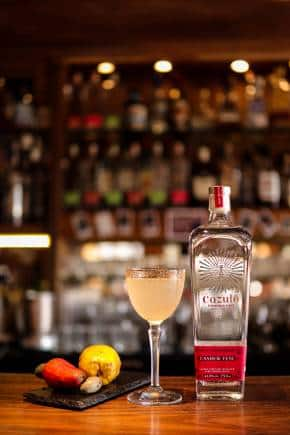 Feni cocktail
Feni cocktail
Away from bad Fenis available in touristic stores, mixologists and bartenders have opened up a brave new world of flavours.
The pioneers here again are Fernandes, a Siolim boy who threw up a job with Diageo in 2018 to join hands with Hansel Vaz to create a modern Feni cocktail programme. “We wanted to highlight the Feni culture and local ingredients and produce. I had a point to prove as the industry was judging me for quitting a big job in a big brand, to explore country liquor.”
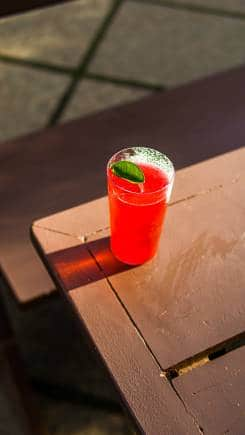 Feni cocktail
Feni cocktail
They created cocktails using foraged ingredients, which have gone on to become icons and are served in bars across Goa. Among them is Tambde Rosa made with crushed kokum that’s mixed with sugar and left in the sun for curing, the best of which I have drunk at Joseph Bar. Peru Meru, a guava variant of Bloody Mary, was discovered by happy accident when they ran out of tomato juice and substituted it with guava juice. Jambul is Feni blended with Black Plum, while Patolleo is an ode to the famous steamed dessert made during Ganesh Chaturthi, an idea from one of Fernandes’ students.
At Slow Tide, bartender Sujan Shetty is experimenting with new Feni cocktails for monsoons, a blend of Dukshiri Feni, green almonds he found in Mapusa market and orange, a beautiful nutty, citrusy libation. Among their fast selling Feni cocktails is Serge, named after an Anjuna commune member, with some unusual ingredients like Bhavnagari chillies and tomato juice and Aperol. He says, “South Goa has better Urrak but north has better Feni.”
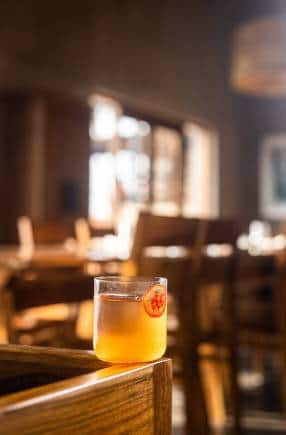 Feni cocktail
Feni cocktail
At Anjuna’s Howling Wolves, Verma adds all kinds of wines and soda to Feni or makes a Cherry Amaretto-like cocktail. Escobar’s Old-Fashioned uses smoke-infused Feni with a dash of lime and orange liqueur. Says Bose, “If you want to get introduce someone to Feni, hook them to the flavours of amazing cocktails first and then, wham, you have suddenly got them interested in a pure spirit.”
Sometimes these experimentations can go wrong in the hands of inexperienced bartenders who don’t understand the spirit. According to Fernandes, “Feni is not like vodka, which is a flavourless spirit and can absorb any flavour. It is, instead, like Tequila, and you need to be careful about the flavour profile of the ingredients you blend it with.”
Taking Feni outside Goa
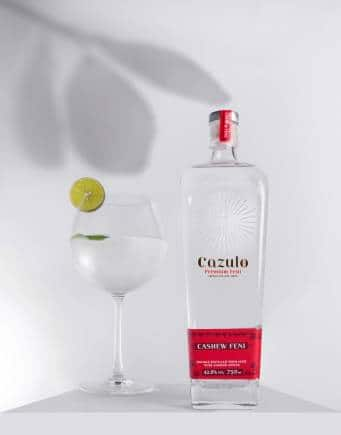 Cazulo cashew Feni
Cazulo cashew Feni
Feni makers, bartenders and connoisseurs we spoke to insist that Feni can represent Goa on the world stage. Bose informs, “Back in the day, locals felt Feni is best enjoyed within Goa. But attempts are being made to take it outside the state. Distributors have been able to buy Feni in bulk and sell it to Goans in Canada. Tinto has been able to convince Maharashtra to sell its bottled Feni.”
Fernandes was recently invited to Bar Benfiddich, Tokyo (Asia’s #5 and one of the top bars to feature in the World’s 50 Best Bars list) to introduce Feni to Japanese bartenders and mixologists. “I took 20 bartenders on a journey of flavours and unique distillation techniques used to distil Feni with 40% ABV, which is what adds the funk to the spirit, and they were mind blown.”
Vaz is plumping for taking Feni overseas and introducing it to non-Indians. “We need to follow the cognac method; it is only made in the Cognac region of France, governed by lots of rules, and exported overseas. Goa doesn’t have the capacity to make as much Feni as India may want, but we have enough to deal with local demand and export it. Also, selling a Feni cocktail in a New York or London bar will give it far better leverage.”
An explosion in craft spirits and the desire to explore, which resulted in a boom in the Gin, Tequila, Rum and Mezcal segments globally, gives Feni makers such as Vaz a reason to hope that Goa’s heritage spirit will have its day under the sun soon.
Discover the latest Business News, Sensex, and Nifty updates. Obtain Personal Finance insights, tax queries, and expert opinions on Moneycontrol or download the Moneycontrol App to stay updated!
Find the best of Al News in one place, specially curated for you every weekend.
Stay on top of the latest tech trends and biggest startup news.